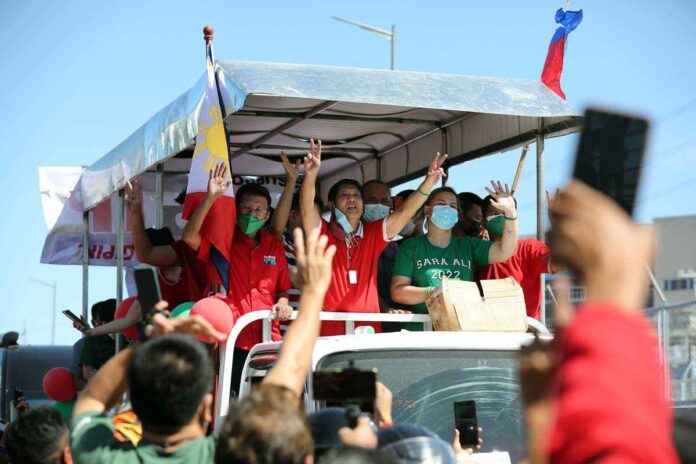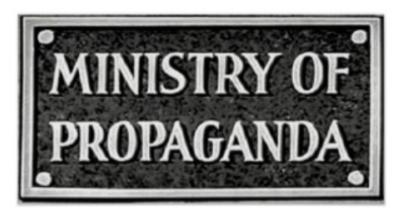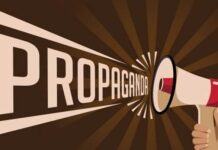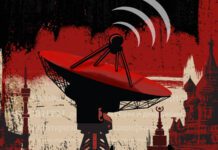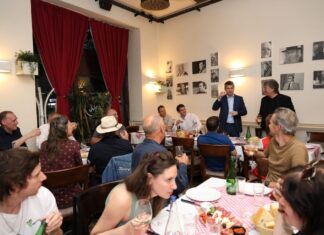The Philippines has a long history of political upheaval and social unrest. A former Philippine senator is one of the most divisive people in recent memory. Despite the contentious past of his family, Bong-Bong Marcos, the late dictator’s son, has established himself in politics.
And on May 25, 2022, the Philippines witnessed the election of its 17th President, Bong Bong Marcos. As a result of this historical event, there have been numerous debates and arguments about Marcos’ ascent to power, especially concerning the media’s coverage of his campaign and the use of propaganda techniques to sway the public.
As a human, it is simple to be manipulated and persuaded, especially in politics. To acquire insight into the elements influencing election success, it is crucial to comprehend the historical backdrop and the propaganda strategies used in political campaigns. And as part of the analysis, it is essential to look at how the media and propaganda affect public opinion, voter behavior, and ultimately the outcome of elections.
This article discusses Bong Bong Marcos’s background and the election-winning propaganda strategies he employed. The history of the Marcos family, their ascent to power, and their political impact on the Philippines will be covered in this article. They go through two crucial issues surrounding Marcos’ campaign: the manipulation of public opinion using social media and misinformation and the consequences for Philippine democracy of nostalgia for the Marcos administration.
Through this analysis, I seek to shed light on the intricate interactions between politics, propaganda, and the media in the Philippines and offer an understanding of the elements that led to Bong Bong Marcos’ election success. It is critical to look at how media and propaganda shape public opinion and affect the democratic process in the Philippines, given the contentious history of the Marcos family and the current discussions regarding the legitimacy of his rule.
Bong-Bong Marcos’ controversial family history
Bong-Bong Marcos comes from a controversial family with a long-debated history. The Marcos family ruled with authoritarianism, corruption, and breaches of human rights. The recent election of Bong-Bong Marcos proves their legacy’s effects are still felt today.
The Philippines was placed under martial law from 1965 to 1986, resulting in the suspension of civil liberties, extensive human rights violations, and unrelenting corruption. Ferdinand Marcos served as president during this time. During their tenure in power, the Marcos family acquired a huge fortune that is thought to be worth $10 billion and was purportedly taken from the government’s coffers. Because of how pervasive their corruption was, the Marcoses came to represent kleptocracy.
The Marcos family’s legacy has been significantly influenced by propaganda, which tried to improve their reputation and portray them as national heroes of the Philippines. They have attempted to downplay the corruption and human rights violations that defined their leadership while highlighting the construction of infrastructure and the expansion of the economy.
Bong-Bong Marcos has come under fire for his family’s contentious past and his alleged lack of regret for the atrocities carried out under his father’s rule. While some contend that the nation has moved past its past and forgiven him, others see his victory as a symptom of a troubling trend toward authoritarianism.
The effects of Bong-Bong’s exposure to the contentious part of the Marcos family The political career of Marcos cannot be ignored. His rise to power has been aided and hampered by his family’s legacy. On the one hand, he has an advantage in his political efforts thanks to his family’s money and name recognition. On the other side, he has found it challenging to overcome many Filipinos’ unfavorable opinions of the Marcoses due to the stigma connected to his family’s history.
The contentious familial background of Bong-Bong Marcos has had a considerable effect on his political career. The Marcos era’s human rights violations, corruption, and despotism have left a long-lasting mark being felt today. A significant accomplishment has been employing propaganda to shape the Marcos family’s legacy. It is unclear how Bong-Bong Marcos’ election as president will affect the nation’s future, but his victory has once again brought these issues to the fore. The Philippines is an example of a nation that has recognized and addressed its past, which has had a tremendous impact on its present and future.
Propaganda and Social Media Influence on His Presidential Campaign
Propaganda has grown more effective as a weapon for swaying public opinion in the era of social media domination. The election of Bong-Bong Marcos as the 17th President of the Philippines raises concerns regarding social media and propaganda’s role in the outcome of the vote.
Marcos’ campaign approach aimed to present a favorable image of himself and his family while demonizing his rivals. Marcos and his team used social media, television, and radio to convey their message and impact public opinion. The Philippines has a population of 111 million people and over 74 million active social media users, according to Hootsuite and We Are Social’s Digital Reports 2021. There are also 73 million internet users in the country. The Philippines has one of the highest rates of social media and internet usage in the world, with 73% of the population using social media and spending 10 hours and 56 minutes online daily on average, further demonstrating the efficacy of this technique. This information demonstrates how social media and the internet have assimilated into Philippine culture. Politicians utilize social media platforms to interact with voters and spread their agendas, and this practice has become all too common in the nation.
Social media was used by Bong-Bong Marcos and his political party, the Kilusang Bagong Lipunan (KBL), to promote Marcos. Through social media, they could highlight Marcos’ achievements, future goals, and personality. Additionally, they used social media to counter any negative press that Marcos might have gotten.
One of the main strategies employed by Marcos’ team was propaganda and false news manipulation of online conversation. The widespread dissemination of inaccurate material and misleading tales via social media contributed significantly to Marcos’ win. This strategy is not exclusive to Marcos; politicians worldwide have used social media to disseminate misinformation and sway public opinion.
The ineffective use of media by Marcos’ rivals in their campaigns is another factor contributing to its success. His rivals needed additional funds and resources to compete with Marcos’ well-funded and well-organized campaign because they could not match his media presence.
Propagandist tactics significantly influenced the 2022 presidential election. The Marcos campaign amassed a sizable social media following, which aided in the more efficient dissemination of their misinformation. Bong-Bong Marcos was elected as president of the Philippines due to the employment of propaganda to foster a positive image of him.
In conclusion, The victory of Bongbong Marcos in the 2022 Philippine presidential election raises questions about the role of media and propaganda in modern politics. While social media and online platforms have democratized information, they have also created new avenues for spreading disinformation and propaganda. Citizens need to be aware of how media can be manipulated, and governments need to take steps to combat the spread of disinformation.
The new role of digital media in modern politics
In conclusion, questions concerning the role of the media and propaganda in politics have been voiced in light of Bongbong Marcos’ election as the 17th President of the Philippines. It is clear from examining his campaign tactics, and social media use that the Marcos campaign successfully used the internet to change public opinion in their favor.
Additionally, the Marcos political dynasty has a history of manipulating historical accounts and employing misinformation. Filipino people’s collective memory and historical reality are also at risk, in addition to democracy.
The media must keep its obligation to present balanced and truthful news to stop similar incidents from occurring again. To stop the dissemination of false information, journalists and media outlets should place a high priority on fact-checking and critical analysis of political advertisements and propaganda.
The government should also implement regulations to control how people use social media during election seasons. This will assist in reducing the dissemination of propaganda and false information that can be used to sway public opinion.
A healthy democracy depends on an impartial and free press. The media must be fearless in speaking truth to power and vigilant in pursuing the truth.
In conclusion, while some may view Bongbong Marcos’ election as a victory for media spin and misinformation, it nonetheless serves as a reminder of the need of a free and impartial press in defending democracy and safeguarding the truth.


